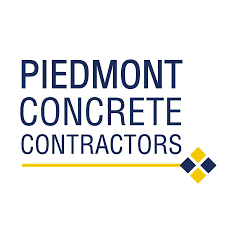
It is important to learn about the workings of heat pumps before installing them in your home. There are three types of heat pumps: central, geothermal and ducted air source. Find out how to choose the best heat pump for your home by reading on. Learn how to safely deactivate an existing system. You should plan ahead if you are going to install a heatpump in your home.
Ducted heat pump from air source
Ducted heat source heat pumps offer a great solution for homes that need more heat in the winter and cooler in the summer. These heat pumps use a ductwork system that circulates conditioned air throughout your house. You can also install them in individual rooms. They can be installed in any room or throughout the house to provide temperature control. These are just a few of the many benefits of ducted heat pumps.

These HVAC systems are extremely energy efficient. They help to reduce greenhouse gas emissions. You can choose between ductless and ducted models. Ducted air source heat pump can help you save hundreds of money each year and avoid the need to buy a new central conditioning system. They are less likely to produce allergens, and they provide better cooling during summer months. There are two options depending on the size of your house: ductless or ducted.
Geothermal heat pump
You should be aware that geothermal heat pumps distribute heat throughout your house by using the earth's heat. They circulate fluid through a closed loop. The fluid is usually made from plastic tubing, and is either buried under the ground or submerged in water. The heat exchanger transfers heat from a heat pump's refrigerant into the antifreeze solution in a closed loop. These heat pump are often horizontal or vertical. There are also stand-alone models which can supply domestic hot water.
If you plan to install a geothermal system in your home, you should first know what type of installation will be the best for your needs. There are two types. The closed loop system and the open loop. The first one is simpler to install and uses ground heat to cool your residence. The latter is less common, and may be installed only in areas where groundwater is abundant. Each type of installation will require different installation methods. If you aren't sure which type of system would work best for you, it is worth speaking with a professional.
Heat pumps central
You need to carefully consider the pros and con's of central heat-pump installation before you make a decision. Before you buy a heat pump, the most important thing to look at is its energy efficiency. The more efficient your heat pumps are, the longer they can keep your home cool. A qualified HVAC professional can recommend the size of heat pump that is right for your home. Once you've figured out how much energy it uses, you'll need to figure out how much money you'll save.

There are many choices for central heat-pump models on the market. There are budget-priced options and premium ones. Models at a budget price will last 12 to 16 years. Standard-priced units are mid-priced and of good quality, lasting 15 to 18 years. The most expensive heat pumps, but they are of excellent quality and last for 17 to 22 years. You can select the brand that best suits your needs and your budget.
FAQ
How much does it set you back to get building permission?
It can vary depending on the complexity of your plan and where it is located. It can also depend on whether you are applying for permission to build or extend your existing house. The application process can take several months, so be prepared to wait until everything is finalized.
What happens if one party doesn't take their side of the deal?
If you fail your end of the bargain, the law permits the other side to treat your promise as void and sue for damages. Damages include the amount owed plus interest, court costs, and legal fees.
Is a Service Contract a Warranty?
A service contract is not a guarantee. It is an agreement between 2 parties to exchange goods. In this instance, the customer agrees that he will cover the costs of replacement or repair if the product doesn't perform as expected. This type is also known under the name maintenance contract.
Who is responsible for paying for the service
The SCA will specify which party is responsible to pay for the service. In the event that the service provider is not paid fully, they may be eligible to seek compensation from the courts.
Statistics
- (1) Except as provided in paragraphs (a)(4) and (a)(8) of this section, if the estimated amount of the contract or subcontract is $10 million or more, the contracting officer shall request clearance from the appropriate OFCCP regional office before- (acquisition.gov)
- Don't take their anger personally, they are mad about the situation 99% of the time. (activatemylicense.com)
- (1) Ascertain the extent to that offers are based on the payment of overtime and shift premiums; and (2) Negotiate contract prices or estimated costs without these premiums or obtain the requirement from other sources. (acquisition.gov)
- Reasonable late fees go up to 25% per year on unpaid sums. (lawdepot.com)
- While we offer all our high-quality services at competitive prices, we know that many who need our services are on fixed incomes, so we offer a 10 percent discount for seniors and military members. (homeservicecontractorsinc.com)
External Links
How To
How can I get started with the negotiation of my first service arrangement?
Negotiating the terms of your first service agreement can seem overwhelming.
However, it does not have to be difficult for you to negotiate the terms of your first contract.
It all comes down to how prepared you are.
Before you start negotiations, make sure you fully understand the terms of your first service contract.
You should also know exactly what your plans are for each customer.
And you should know what the customer expects from you.
Once you have a clear picture of the services you provide, it is time to start planning for negotiation.
You will be more prepared when you meet with the other person.